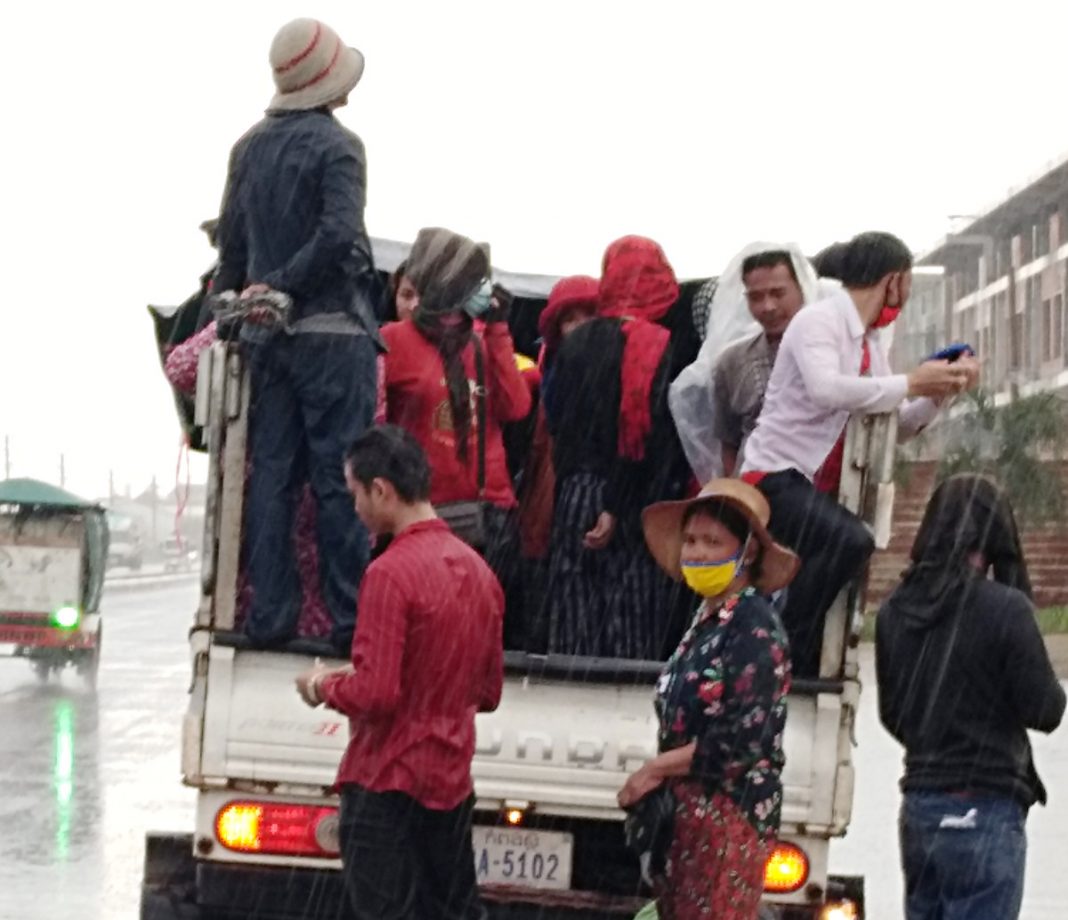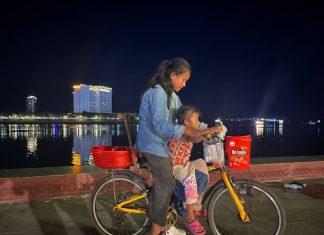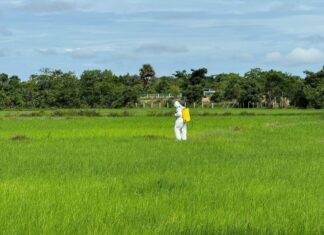Unions and workers say some are selling their possessions or taking on more debt out of desperation as a coronavirus-induced downturn halts production at hundreds of garment factories.
There have been more than 150,000 job losses in the sector since the global coronavirus pandemic led to a collapse in trade and garments orders from international brands, according to the Garment Manufacturers Association in Cambodia. More than 400 factories have closed down or suspended production, it says. The association said earlier this year that it represents a total of 580 factories, employing 750,000 workers.
According to the Asian Development Bank, the Cambodian economy is expected to contract by 5.5 percent this year, which risks pushing 1.3 million more people into poverty.
Yang Sophorn, president of the Cambodian Confederation of Unions, estimated that 90 percent of workers were in debt, mirroring a recent survey by unions and rights groups.
“This makes their living extremely difficult,” she said. Though banks and microfinance institutions had offered some concessions such as allowing borrowers to make only interest payments instead of repaying the principal, in the end the workers will end up paying more, she said.
Peanh Keuon, another officer at the union, said debt, daily expenses, medical costs and rents all weighed on unemployed workers.
“They have to pay for food, buy milk for their children. Some have sick mothers to take care of, and they have to pay for medical treatments,” Keuon said. “Some factory workers sold their motorbikes or any valuables they have to pay the loan. Some borrowed money from private lenders to pay the bank loan.”
Cambodian Labor Confederation president Ath Thorn said there were few jobs available for the more than 150,000 newly unemployed workers.
“They cannot find other jobs to do,” Thorn said. “They have no money for getting food, have nothing to support other needs including paying banks. So it is extremely difficult for them, some to the point of selling property to meet their payments.”
Labor Ministry spokesman Heng Sour did not respond to questions.
Starting on August 12, the EU’s decision to take away Cambodian trade benefits over labor and human rights violations is slated to take effect. The Garment Manufacturers Association in Cambodia this week reiterated its call for the EU to reassess this decision over the “Everything But Arms” (EBA) trade scheme.
The association had already warned the International Labor Organization that “this second blow would lead to even more factory closures and displaced workers, and increase poverty in Cambodia,” it said. Garments and travel goods make up 75 percent of the country’s total exports.
The government has announced various support and stimulus measures, but its promise to pay $40 a month to suspended workers has been criticized by unions for being difficult to access.
Chap Thy, a garment worker, said she was willing to look for any other work if her factory closed down, but was concerned whether she would be able to meet her living expenses. “If the factory that I work at closes, what I’m most worried about is the debt.”












